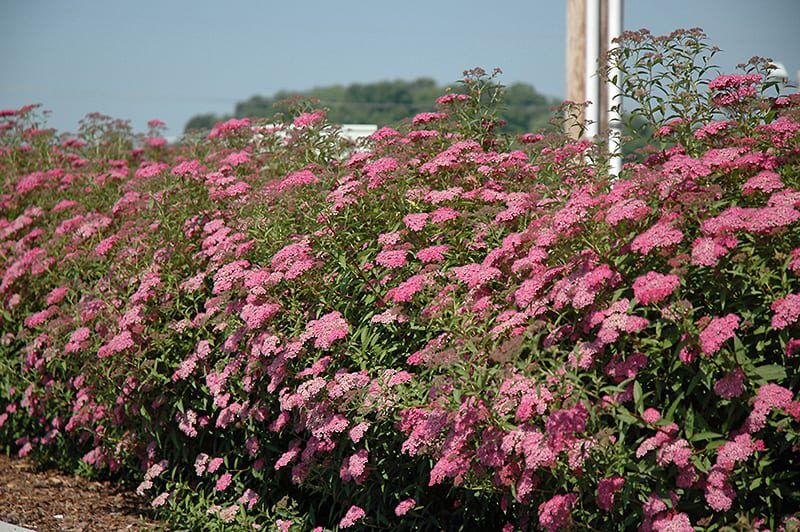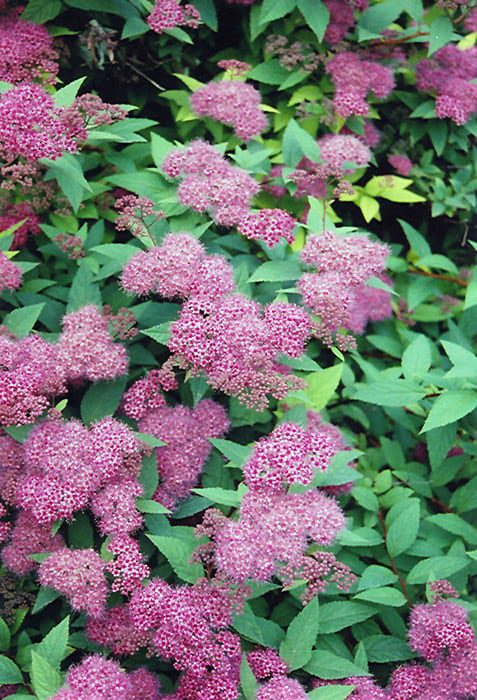Anthony Waterer Spirea
A broadly spreading garden shrub featuring attractive clusters of carmine-red flowers offset against the foliage, turns purple in fall; very low maintenance plant, excellent in groupings, needs full sun and well-drained soil.
Please contact your local store for product availability.
Find a garden center near you.
Species: x bumalda
Other Species Names: Spiraea japonica
Plant Height: 36 in.
Spread: 48 in.
Evergreen: No
Plant Form: round
Emergent Foliage Color: brick red
Summer Foliage Color: sea green
Minimum Sunlight: full sun
Maximum Sunlight: full sun
Anthony Waterer Spirea features showy clusters of rose flowers at the ends of the branches from late spring to early summer. It has attractive bluish-green foliage which emerges brick red in spring. The small serrated pointy leaves are highly ornamental and turn an outstanding burgundy in the fall. The fruit is not ornamentally significant.
Anthony Waterer Spirea is a multi-stemmed deciduous shrub with a more or less rounded form. Its relatively fine texture sets it apart from other landscape plants with less refined foliage. This shrub will require occasional maintenance and upkeep, and is best pruned in late winter once the threat of extreme cold has passed. It is a good choice for attracting butterflies to your yard, but is not particularly attractive to deer who tend to leave it alone in favor of tastier treats. It has no significant negative characteristics. Anthony Waterer Spirea is recommended for the following landscape applications; Mass Planting General Garden Use
Anthony Waterer Spirea will grow to be about 3 feet tall at maturity, with a spread of 4 feet. It tends to fill out right to the ground and therefore doesn't necessarily require facer plants in front. It grows at a fast rate, and under ideal conditions can be expected to live for approximately 20 years. This shrub should only be grown in full sunlight. It prefers to grow in average to moist conditions, and shouldn't be allowed to dry out. It is not particular as to soil type or pH. It is highly tolerant of urban pollution and will even thrive in inner city environments. This particular variety is an interspecific hybrid.

